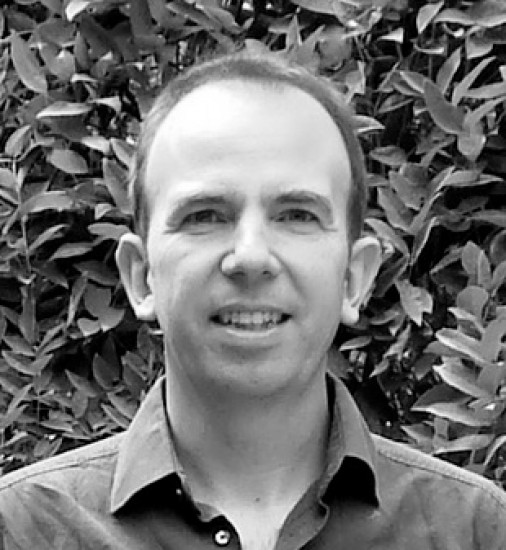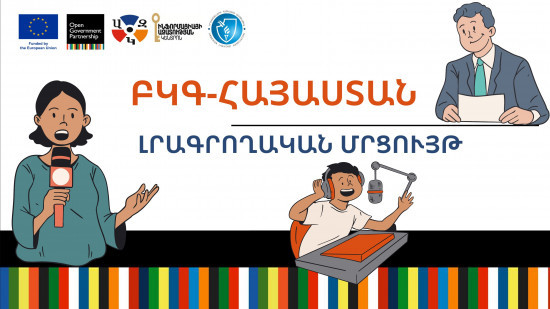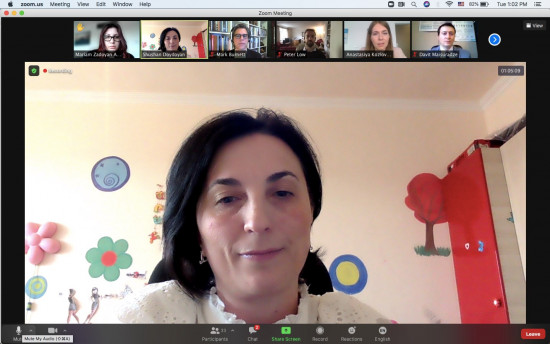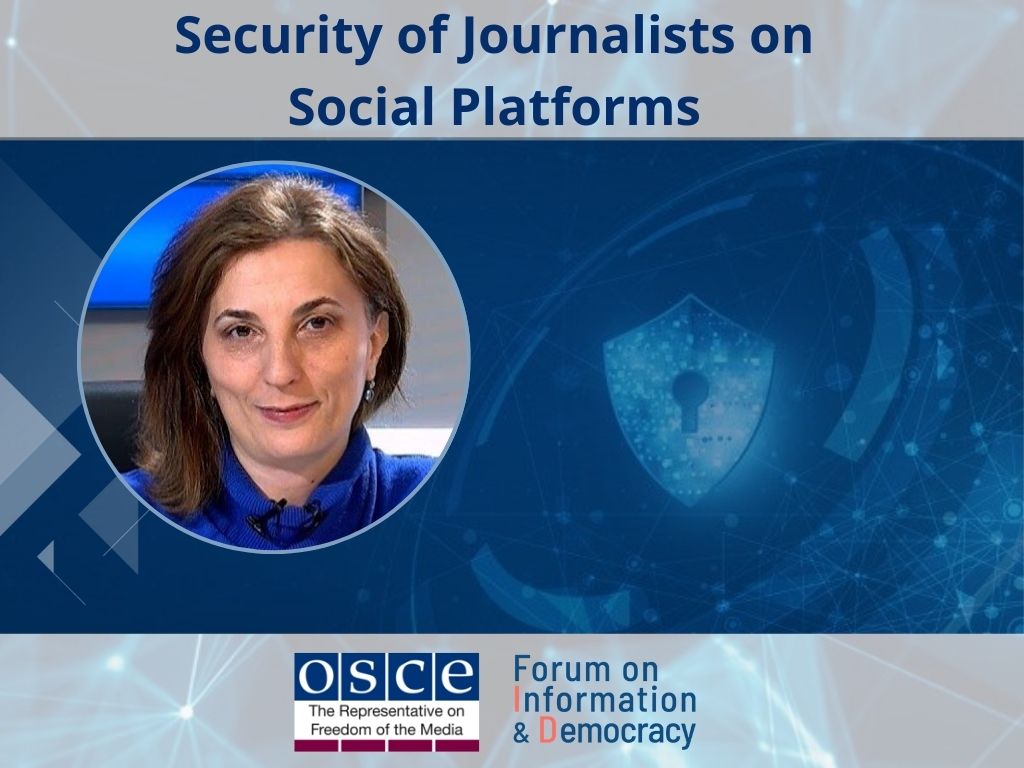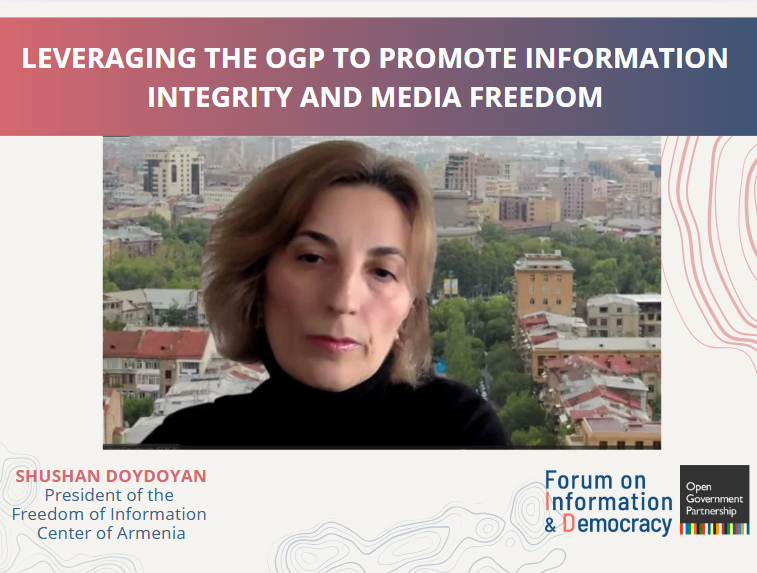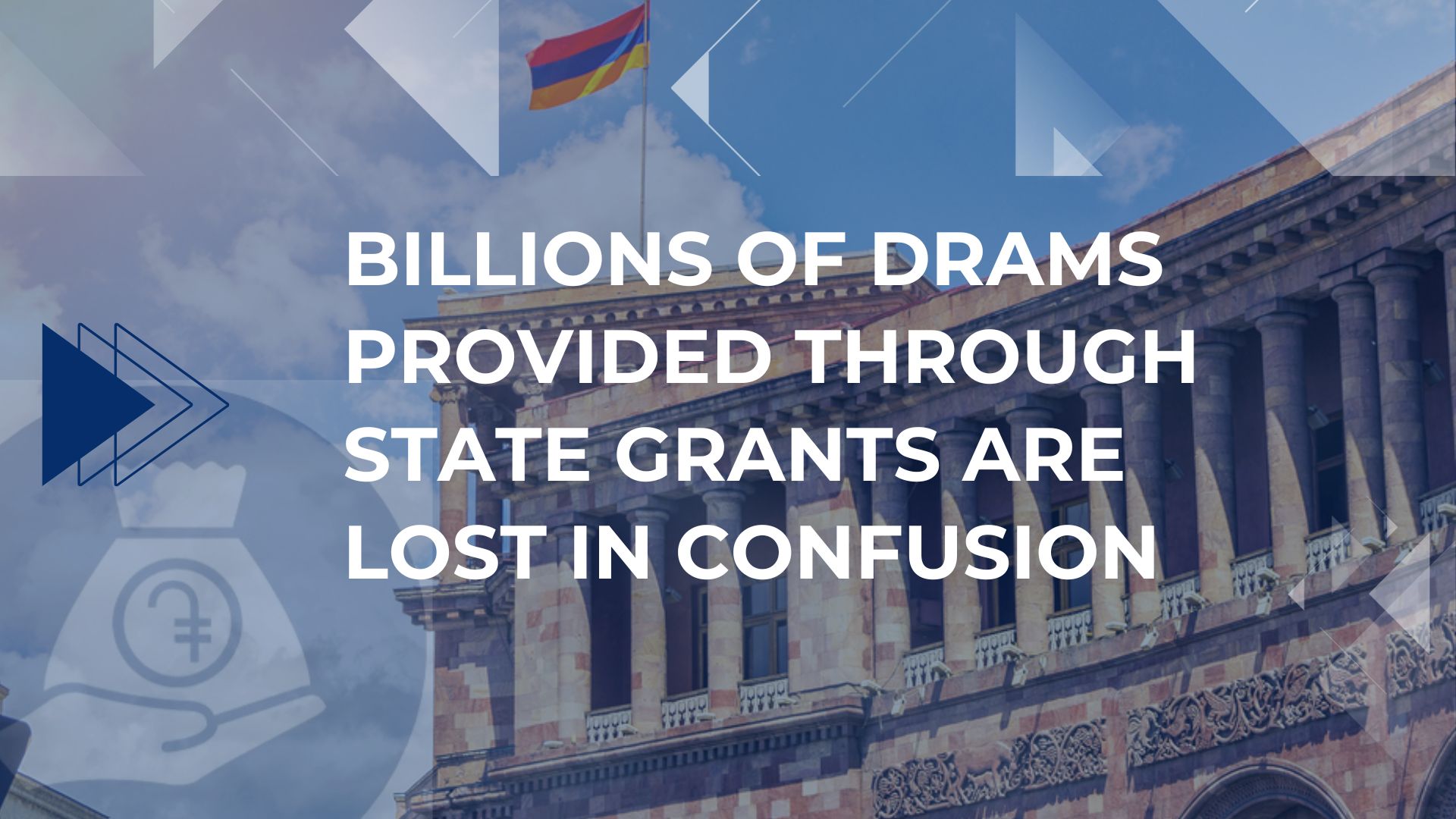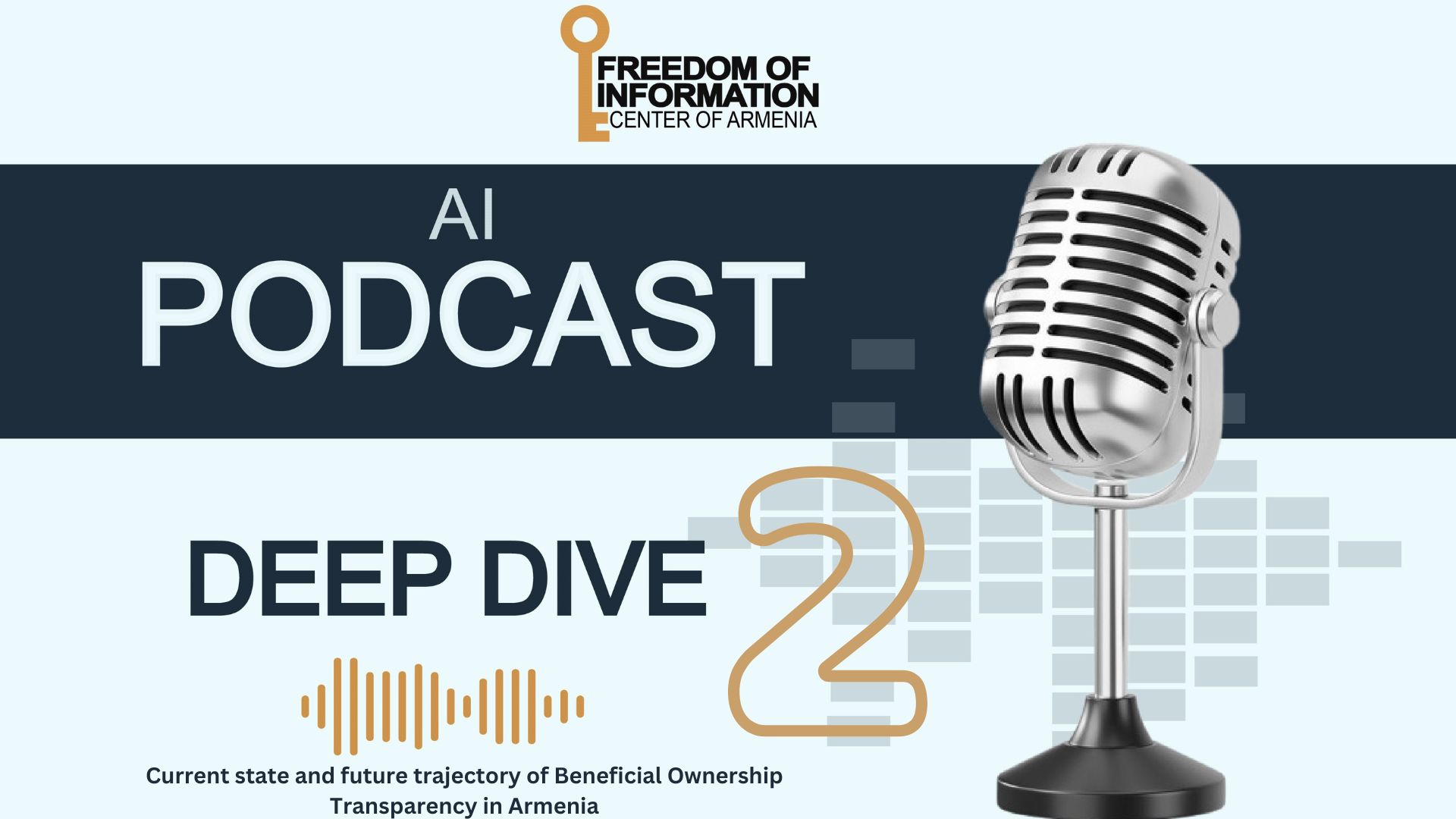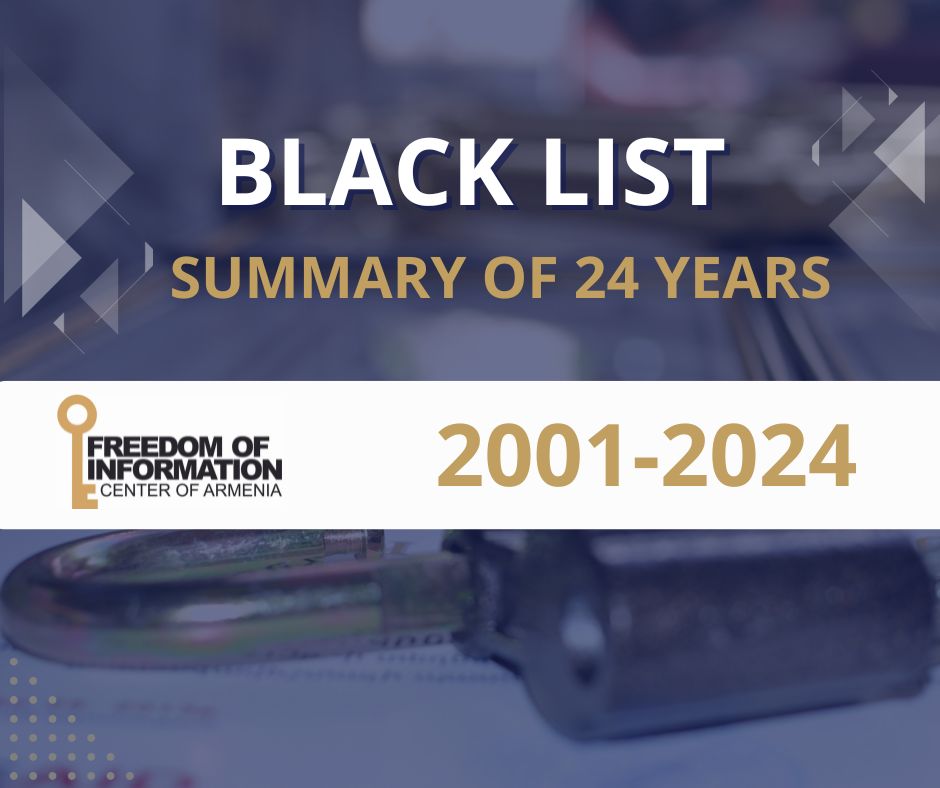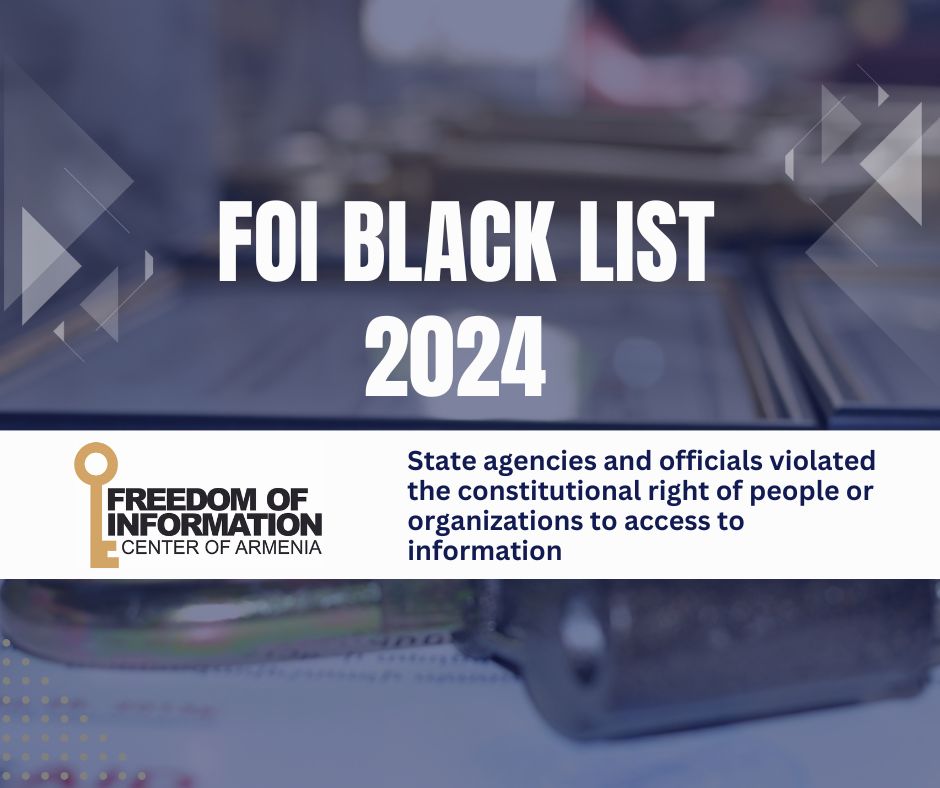Dear Armenian friends,
My sincerest apologies for not being able to make it to your conference last week.My name is Paul Maassen, and I am the independent civil society coordinator for the Open Government Partnership hosted by an international development organisation called Hivos. My role around OGP is to make sure the needs and wishes of global civil society are heard at the international governance level, but much more important in working with civil society actors across the globe on understanding and using OGP, making it work as a tool to reach your objectives and changing your countries. What I have realised when traveling to OGP member countries is that talking to civil society is not enough. True to the heart of the Partnership idea the potential game changing effect of OGP will only come if reformers both in government and in civil society have the skills, knowledge and resources needed to push for ambitious change.
RozaVardanyan and ShushanDoydoyan asked me to share with you some thought on OGP implementation, do’s and don’ts if you want. Hopefully they can build on the energy that started flowing last week in Yerevan.
Let me start these thoughts on three key aspects of OGP: partnership, ambition and monitoring, then share some implementation thoughts and close with some lessons for the next Action Plan – in the case of Armenia due early 2014.
Partnership
For me personally the Partnership element is the other exciting element of OGP.
The partnership really is not just between government and civil society. It is also between civil society and civil society. For example, to really improve the access to information situation in a country it would be great if the open data technology geeks work with the access to information policy wonks and they jointly involve media to make use of the access to information laws and open data sets. They should reinforce, not compete.
A broad and proper consultation is obligatory to be a member of OGP. But it is important to see the consultation not as a stand-alone moment, but really as the first step of a change process, a partnership. We should really talk about an ongoing dialogue or permanent platform. Government officials and civil society start talking to each other, explore each others interests and preferences, figure out the dynamics of context and power, and learn to understand each others language. All needed to build a long lasting relationship.
To make that work asks for time, for serious intentions, for political backing, for proper listening and feedback – and for a national platform to guide the ongoing dialogue and the joined implementation of the OGP Action Plan. Whether this is a full national level co-governance Steering Committee or a solid advisory body depends on the local context.
To what extent civil society should work with government, or watch government is highly debated and differs per country. Is civil society labour unions and citizens or professional Yerevan based, foreign funded NGOs. Three points from my side: the challenges are big, so we need everyone we can get to make the change happen (don’t define civil society to narrow). Second, we need civil society on the inside and on the outside. Third, it is up to civil society to discuss and decide who represents them. Handpicking by the government is not a good start of a partnership.
Ambition
It is easily overlooked, but the original idea of OGP is to get a race to the top among countries, to push for stretch at national level, to push for innovative reform on one of the five grand challenges. Not to repackage existing plans. The relatively low threshold makes the height you can jump even higher.
As a minimum I would argue you would need to strive for getting a maximum score on the eligibility criteria. Currently you have 10 out of 12. Second, your commitments should – at least in part – be new and additional and stretching. Third, they need to be part of the transparency, accountability and participation domain, part of the grand challenges, reflect national priorities.
If you then manage to get it written down in a SMART way (specific, measurable, attainable, relevant and time-bound), secure resources, get buy in from bureaucrats and politicians you have a good starting position.
Monitoring
I am not sure yet you are there yet, but there are 3 ways of monitoring in OGP. The first is the government self-assessment. The first 8 founding members have just completed that and you can find their self-assessment on the OGP website www.opengovpartnership.org. Armenia will have to do that by the end of September. The official independent OGP monitoring report (IRM), more a monitoring dialogue resulting in a report, is due January 2014. Currently the IRM is looking for a good local Armenian researcher to do that job. The third level of reporting is the monitoring done by civil society and media.
One point to make here is that a well-defined plan simplifies monitoring. A much more important point is that this is an opportunity to learn and reflect. I personally find things that fail more interesting than things that work. OGP is young, is trying things out. That also means that the coming years OGP will be an extremely interesting space to watch for innovation on consultation process, on partnered implementation, on new ways of monitoring. And opportunities to share that with other countries as well. The London OGP Summit on October 31 and November 1 is an excellent opportunity for that.
Implementation
With 59 members and more than 50 plans delivered we can safely say that OGP is in implementation mode. If you asked me a year ago I would say I wswrried about the national consultation. But not that much, because it is the first cycle and the first year. Now I would answer the implementation worries me.
Some issues that come up – next to regular problem with implementation of policies and plans by government – are:
- lack of budget for OGP implementation;
- civil servant that made the OGP plans are not necessarily the same ones in the bureaucracy that need to implement, plus staff rotates;
- the political election cycle changing the political agenda and backing;
- the group of reformers to pull this of is in some places still small;
- figuring out the role of civil society in implementation.
That said, Mexico and the US to name just two had a very good report card of actual delivery upon OGP plan. That is not just what their self-assessment said, but also what civil society reports in these countries said. Most commitment delivered or well on progress track.
A US innovation worth sharing: they created teams of civil servants and civil society actors around each commitment that worked jointly on implementation. It helped in building a relationship of trust. It also opened access to the broad knowledge civil society can tap into, whether it is on extractives, access to information or open data implementation. In general that is a strong point of OGP: a country can tap into the knowledge of others in-country, but also outside via the OGP networking mechanism, the peer learning moments (for example in London) and the to-be-created working groups with leaders around fiscal openness, open data, access to information and parliamentary openness.
Looking ahead
The last 5 months a consultant by the name of DolarVasani interviewed over 40 people – government and civil society alike – on their OGP first year experiences. Her overall conclusions are still in draft but I am copying them here nevertheless.
Lay a solid foundation: Making a solid start to the partnership is essential and helps to lay the right foundation for a collaborative relationship and for building trust between government and civil society. For the OGP motor to turn smoothly and efficiently, government commitment is critical, CSO participation is essential and a well resourced and functioning secretariat in the most appropriate government department is a vital cog in the wheel.
Get organised! For civil society to be effective, they need to be knowledgeable, proactive and organized. Furthermore, when coordinated and led by a nominated agency or ‘driver’ that has the necessary skills, time and acceptability, and is looking beyond its own agenda their involvement has been most meaningful and substantive. Having a dedicated person/s that is financed in equal parts by the CSO community builds ownership and professionalises the role.
Establish a platform for dialogue: Civil society engagement should start from the very first day and membership to the working groups or steering committee should be equally divided, representative and sought in an open and transparent way using processes such as self-selection, invitation, application or election. Institutionalising such platforms further validates the contributions and enhances the security, making them more robust to political and regime changes.
Be smarter with managing time: Time is a resource that needs to be managed efficiently and effectively: off and online consultations take time if they are to be broad, inclusive and representative. Delaying these processes leads to the Action Plan being drafted hurriedly, with sub-optimal and restricted consultations. As a general rule, avoid holding consultations that coincide with political transitions, such as elections or regime changes. In some instances, these have created space and interest in more political openness.
Consult widely: A ‘one size fits all’ strategy of consultations is inadequate. The broader involvement of actors, from both civil society and government has made the process more inclusive, more robust and has ultimately raised the final quality of the commitments and activities. Developing strategies for gathering inputs, comments and providing feedback are central to the entire process.
Building partnerships: Growing the body of reformers and national and international level is vital for a vibrant and healthy society. Building trust and a working relationship between government and civil society takes time and effort. It requires understanding each other’s languages, listening to and appreciating respective viewpoints, keeping an open mind at the same time being critical, working towards constructive engagement
With those lessons will come 15 different country articles that from now on we will send out 1 per week via the civil society mailing list or that you can read at www.ogphub.org. You can also follow me on twitter at @maassenpaul.
OGP is about transparency and accountability, but it is also in the end– more so – about quality education, improving health, fighting corruption, creating jobs.
I wish you all the best with implementing this and future Armenian OGP Action Plans
Kind regards,
Paul Maassen
Independent Civil Society Coordinator OGP
Civil society newsletter: send an e-mail to nvaart@hivos.nl
Civil society website: www.ogphub.org
OGP website: www.opengovpartnership.org
OGP blog: blog.opengovpartnership.org
e-mail:maassenpaul@gmail.com
skype: maassenpaul
twitter: @maassenpaul

